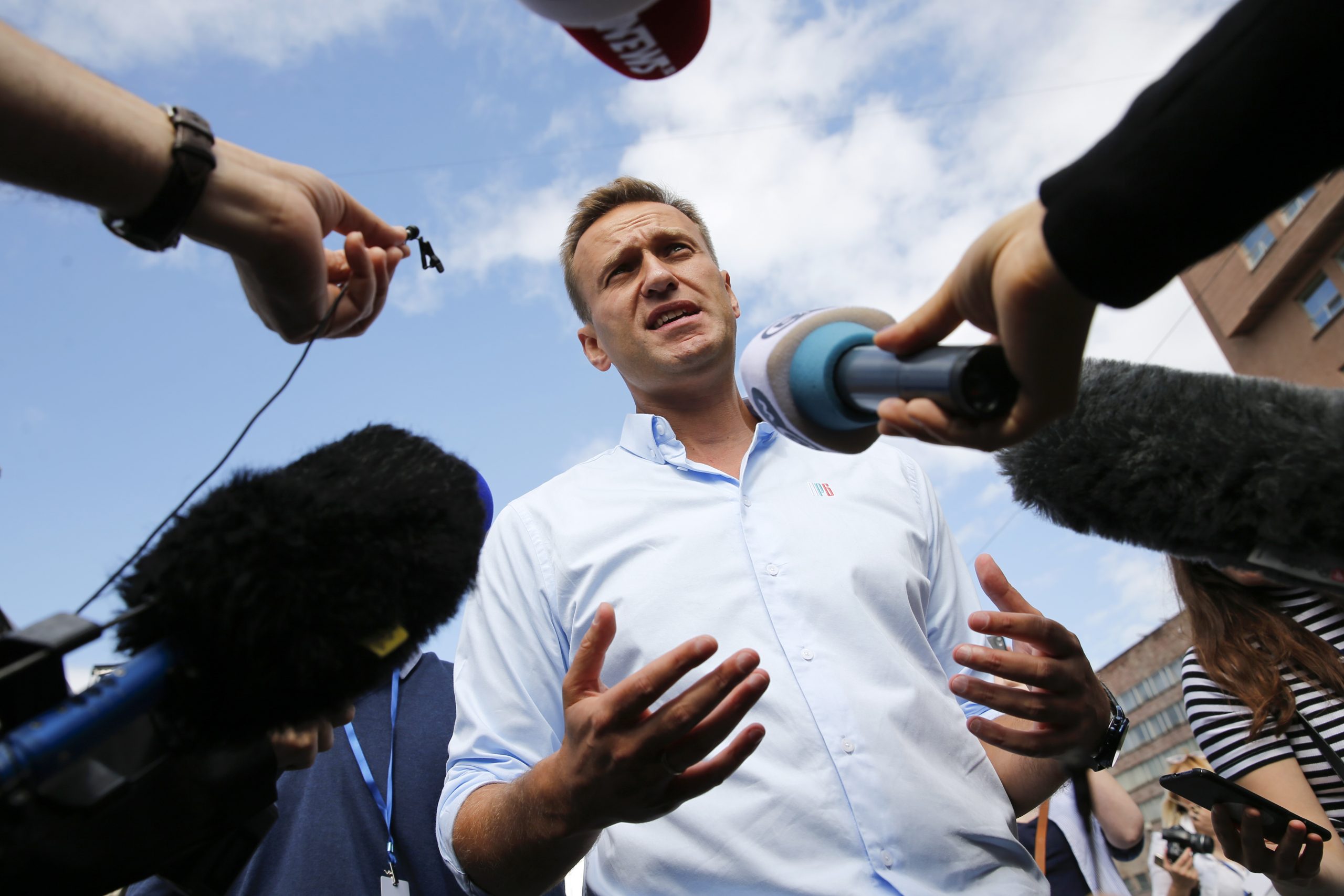
There is bravery, and then there is Alexei Navalny’s return to Russia. Only five months ago, the opposition campaigner was groaning in agony on a flight from Siberia to Moscow. Tests in a Berlin hospital subsequently showed that he had been near-fatally poisoned by a Novichok nerve agent, a calling-card of Russian military intelligence. He emerged from an induced coma in September, started walking again a couple of weeks later and, on 17 January, flew back with his wife from his convalescence in Germany. On landing, he barely managed a snatched kiss with her before he was arrested. He now faces 30 days in custody awaiting trial on spurious charges, which could become years, not to mention the risk of further attacks.
To understand Navalny’s significance and the personal risk he has taken requires a detour through Russia’s recent political history. In a 2010 book, the political scientists Steven Levitsky and Lucan Way defined Russia as a “competitive authoritarian” system, a political hybrid in which elections and a semblance of opposition were permitted (often as a pressure valve for discontent), but violence, manipulation and a captive media obstructed a genuinely democratic contest. With the oil- and gas-rich economy booming and most Russians obtaining their information from regime-loyal TV channels, Vladimir Putin’s United Russia could uphold the pretence of openness while comfortably maintaining its grip on power.
But the subsequent decade brought two big shifts. The first was that lower oil prices and, after the annexation of Crimea in 2014, Western sanctions suppressed Russia’s economy. Having averaged almost 7 per cent in years before the financial crisis, its GDP growth averaged some 2 per cent during the 2010s. Belt tightening, including falling real wages and a deeply unpopular increase to the pensions age in 2018, made the huge riches accumulated by oligarchs close to and within the government more politically inflammatory.
The second shift was in Russians’ internet usage, which rose from 29 per cent in 2009 to 82.6 per cent in 2019. A study by Deloitte found that TV consumption has now fallen for five years in a row, particularly among young and city-dwelling Russians. YouTube has been the big winner.
The combination of more pronounced grievances and new channels by which they can spread alarms the regime. Polling by the independent Levada Center shows that, while Putin remains popular, the proportion of Russians naming him as the figure they most trust is down from 59 per cent in 2017 to 23 per cent in 2020.
[see also: What Alexei Navalny’s return to Russia means for Vladimir Putin]
Despite the exclusion of many opposition candidates, which prompted mass protests, United Russia lost a third of its seats in Moscow’s municipal legislature in 2019. Last summer there were protests in Khabarovsk, in Russia’s far east, over the arrest of an opposition governor. With Duma elections looming this September, polling puts United Russia’s vote share at around 30 per cent, compared with 54 per cent in 2016. Its valuable “super-majority” of seats is at risk.
Spooked by all this, and by pro-democracy protests in nearby Belarus, the authorities have cracked down. Last year Putin won a referendum that reset the clock on his term limits, enabling him to hold office until 2036, by burying the measure in a package of crowd-pleasers such as a gay marriage ban and an inflation-linked minimum wage.
According to Felix Light, writing for the New Statesman from Moscow, election rigging and prosecutions are increasingly limiting even the tame “systemic” opposition, let alone dissenting voices beyond it. New mooted restrictions would allow authorities to sweep up undesirable opposition figures as foreign agents and impose new censorship on the Russian internet. In an essay last year, Levitsky and Way deemed Russia no longer a “competitive authoritarian” but a “full authoritarian” country.
Navalny is at the nexus of all of these shifts. Despite harassment, phony criminal charges and physical attacks, he has built up more than four million YouTube subscribers by publishing funny, sharp videos that bypass the mainstream televised media and get tens of millions of views. These expose the wealth of regime figures (drone footage of opulent mansions) and state brutality (police beating up Khabarovsk protesters). Unlike even the cautiously independent traditional media, they criticise Putin directly. Navalny’s appeal is largely confined to younger Russians in big cities – Levada polling shows only 20 per cent of Russians approve of his methods – but his supporters are numerous enough to have some electoral impact. Their “smart [tactical] voting” campaign played a role in the 2019 Moscow election result. Navalny is the sort of opposition figure that, while not existentially risky to Putin, the Kremlin cannot bear to tolerate. Hence, it seems, his poisoning.
Hence, too, Navalny’s arrest after he cleared the border at Sheremetyevo Airport. Flashing a V-for-victory sign at cameras as he was led away in handcuffs after a farcical pre-trial hearing, Navalny called on supporters: “Take to the streets. Don’t do it for me, do it for yourselves and for your future.”
They will, particularly when the judicial decision on his future is reached next month and, later in the year, before the Duma elections. But the overall picture is dark. As the cracks in Putin’s authority grow – with United Russia’s popularity sliding and decarbonising countries and firms turning away from the oil and gas on which the economy is reliant – the chances are, as Light puts it, that the regime might “simply stop pretending it is a democracy”. The facade of openness and freedom in Russia is becoming so thin as to be entirely transparent. And that makes Navalny’s return yet braver still.
[see also: Ten crucial questions about the world in 2021]
This article appears in the 20 Jan 2021 issue of the New Statesman, Biden's Burden





